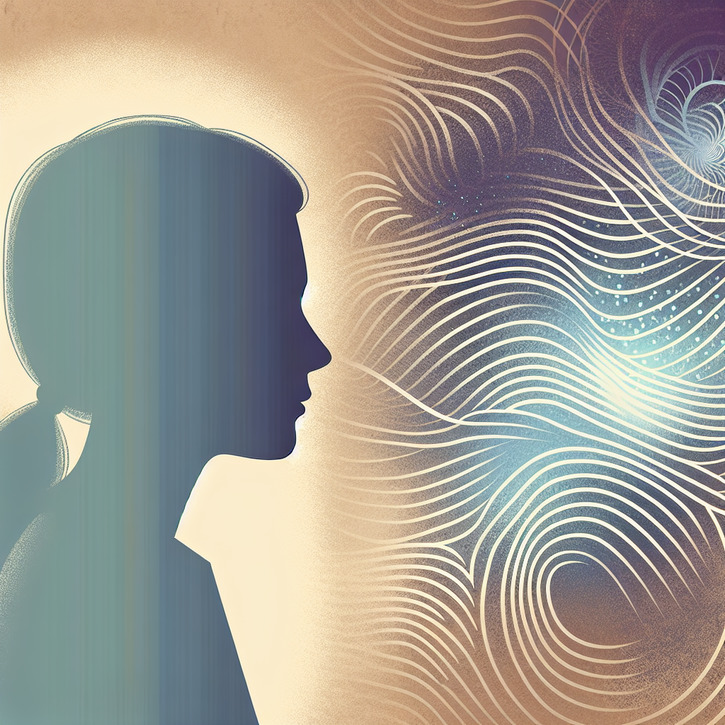Այլ մոտեցության հարցեր: چի՞նէ էլևեյտիվ է հասկացությունը sleep issues:

Introduction to Sleep Issues in a Global Context
What "Sleep Issues" Really Mean: A Multicultural View
Over the course of history and across the globe, people have seen “sleep issues” through many different lenses. In some places, having a hard time sleeping is viewed as a disturbance in the natural flow of life, while in others it’s blamed on modern habits and lifestyles. This mix of perspectives not only shows us that there are many reasons behind sleep problems but also highlights how various cultures deal with them—drawing on their unique spiritual, scientific, and cultural beliefs. By delving into these diverse viewpoints, we get a clearer, richer picture of how sleep issues impact lives around the world.
A Walk Through History: Sleep Issues in Different Civilizations
If you flip through historical texts, you’ll see that sleep wasn’t always taken for granted. From ancient Mesopotamia to the heart of classical Greece, scholars and philosophers alike pondered the mysterious links between sleep, dreams, and overall health. Early medical experts often pointed to nighttime disturbances and sometimes even blamed them on supernatural forces or an imbalance in the body's natural humors. Every era brought its own remedies and theories, setting the stage for the multifaceted treatment methods we see today. It’s a powerful reminder that despite all our modern advancements, sleep issues have been a stubborn, recurring challenge across the ages.
Why Understanding Sleep Issues Matters Today
In our fast-paced modern world, sleep issues have become more common than ever, affecting millions of people. Stress, technology, and hectic lifestyles all play their part in disrupting our sleep. As experts work hard to unravel the science behind sleep disturbances, it’s becoming clear that these problems are deeply tied to both our physical and mental health. Being aware of the factors that disrupt sleep isn’t just good for individual wellness; it’s also crucial for tackling larger public health issues. This growing importance calls for an approach that marries historical wisdom with cutting-edge scientific research.
The Science Behind Sleep Issues
The Inner Workings: Circadian Rhythms and Beyond
When you dive into the biology of sleep, you uncover a fascinating dance between our body’s internal clock and circadian rhythms. These natural cycles guide our sleep and wakefulness, but they can easily get thrown off by irregular habits and environmental factors like bright lights and screen time. This misalignment can throw our biochemical processes out of balance, leading to sleep issues. New research is also shedding light on other biological factors, such as our metabolic processes and hormone levels, which play key roles in regulating sleep. Understanding these complex relationships offers crucial insights into how we might better manage—and even fix—the sleep challenges many of us face today.
The Role of Neurotransmitters in Sleep
Think of neurotransmitters as the body's chemical messengers, quietly orchestrating a symphony that helps us fall and stay asleep. Key players like serotonin, melatonin, and GABA kickstart and maintain our sleep processes. When these chemicals are off balance or lacking, it can lead to various sleep disruptions—ranging from trouble falling asleep to waking up in fits and starts. Studies have shown that tweaking neurotransmitter levels through lifestyle adjustments or targeted treatments can really help those wrestling with chronic sleep problems. It’s a delicate dance between neurochemistry and rest that reminds us why a blend of modern science and traditional wellness practices often makes the best bedrock for tackling sleep issues.
Genes at Play: The Genetic Angle on Sleep
Our genes might be silently setting the stage for how we sleep. Research now suggests that the way our DNA is set up can influence whether we’re more prone to sleep disturbances, like disrupted circadian rhythms. While our environment certainly leaves its mark, genetic predispositions can make some of us inherently more vulnerable to these issues. This insight is paving the way for more personalized treatments that consider not just lifestyle, but also one’s genetic blueprint. By connecting the dots between genetics and sleep science, we’re slowly building a more tailored and effective approach to managing ongoing sleep problems.
Lifestyle Factors and Sleep Issues
How Diet and Exercise Impact Your Sleep
It turns out that what you eat and how you move can have a big say in how well you sleep. Enjoying a balanced, nutrient-rich diet, steering clear of heavy or spicy foods before bedtime, and keeping hydrated can all help stabilize your sleep patterns. Exercise, on the other hand, plays a dual role—it's great for reducing stress and realigning your body’s internal clock, as long as you don’t work out too close to bedtime. Combining smart eating habits with regular physical activity can often pave the way for better sleep. It’s a natural, holistic method to smooth out those sleep disturbances and boost your overall health.
Managing Stress to Improve Sleep
Let’s face it—stress is a major culprit behind many sleep problems. Anxiety does a number on your sleep, creating a vicious cycle where poor sleep only ramps up stress even more. Techniques like mindfulness, deep breathing, or even a bit of meditation can break that cycle significantly. People who adopt these practices often notice a marked improvement in both sleep quality and overall mood. By tackling the mental side of sleep issues head-on, you’re not just managing stress; you’re laying the groundwork for more peaceful, restorative nights.
Everyday Habits That Sabotage Sleep
Sometimes, it’s the little things that can lead to big sleep problems. Irregular sleep schedules, too much caffeine or a nightly dose of alcohol, and overindulging in screen time can all throw your sleep cycle off balance. When these habits add up, they can slowly chip away at your ability to get a good night’s rest. Recognizing and tweaking these everyday behaviors is a key step for anyone battling sleep issues. A few smart adjustments in your routine might just bring about the restful sleep you’ve been missing.
Evidence-Based Interventions for Sleep Issues
How Cognitive Behavioral Therapy Helps
Cognitive Behavioral Therapy, or CBT as it’s commonly known, stands out as one of the best proven methods for tackling sleep issues. Instead of just handing out medication, CBT helps you change the thought patterns and behaviors that keep you tossing and turning. Time and again, research has shown that once you learn to shift your mindset and adjust your routines, you can see a real improvement in sleep quality. This hands-on approach gives people the tools they need to regain control over their sleep, promoting changes that can last a lifetime.
Medicine as Part of the Puzzle
Sometimes, lifestyle tweaks and therapy need a little extra support, and that’s where medication can come in. Various pharmaceuticals—from short-term sleep aids to longer-acting options—can help reset a disrupted sleep cycle. However, these medications are best used under the guidance of a healthcare professional, as they come with their own set of possible side effects and risks. Tailoring these treatments to each person’s unique needs helps strike the right balance between immediate relief and long-term health.
Alternative Therapies: A Broader Approach
Alongside traditional methods, many are turning to integrative and alternative therapies to manage sleep issues. Practices like acupuncture, herbal remedies, and yoga have long been used in various cultures to restore balance and promote better sleep. While the scientific backing for some of these treatments is still building, plenty of people swear by the improvements they notice. Merging these natural remedies with conventional approaches creates a well-rounded strategy, addressing sleep troubles from every angle.
The Intersection of Hearing Disorders and Sleep Issues
When Hearing Problems Worsen Sleep Troubles
The link between our hearing and our sleep is more interesting than most people realize. Disorders like tinnitus—or that constant background buzz—can seriously disturb your sleep. When the brain picks up on these unwanted sounds all night, it can prevent you from entering those deep, restorative stages of sleep. Moreover, the stress and anxiety that stem from continual noise can further mess with your slumber. Grasping this connection is crucial for developing targeted treatments that consider both hearing health and sleep quality.
Screening: Catching the Overlap Early
Getting a proper diagnosis is key when it comes to handling both hearing disorders and sleep issues. Many healthcare professionals now use a combined approach—pairing auditory tests with sleep studies—to really get to the bottom of the problem. This integrated method not only pinpoints the root causes but also allows for more tailored treatment options. By taking both factors into account, specialists can offer a treatment plan that effectively addresses the unique challenges of each individual. It’s all about having a multidisciplinary strategy to boost overall well-being.
Smart Strategies for Tackling Both Conditions
Dealing with both hearing issues and sleep problems calls for a well-coordinated game plan. Combining solutions like sound therapy, lifestyle adjustments, and targeted medical interventions can help lessen the impact of both challenges. For example, using specialized hearing devices might cut down on disruptive background noise, while solid sleep hygiene practices set the stage for better rest. Often, experts from audiology and sleep medicine team up to create personalized plans that take into account the unique difficulties of each case. This kind of holistic approach empowers patients to manage daily hurdles, eventually leading to an improved quality of life.
Real-Life Cases and Success Stories in Overcoming Sleep Issues
Stories of Triumph Over Chronic Sleep Problems
There’s nothing quite as inspiring as hearing real-life stories of people who have conquered chronic sleep issues. Countless individuals have transformed their restless nights into periods of deep, restorative sleep by mixing modern therapies with lifestyle changes. One story stands out—a patient who combined cognitive behavioral techniques with integrative practices, eventually swapping years of sleepless nights for a life brimming with refreshed energy. These narratives not only bring hope but also highlight how a personalized, multi-pronged approach can be the key to lasting improvement.
Clinical Studies That Make a Difference
On the scientific front, clinical case studies provide us with detailed insights into effective sleep treatments. Numerous trials and studies have underscored the benefits of structured therapies combined with simple lifestyle adjustments. These reports offer a treasure trove of data showing how personalized interventions—whether behavioral or pharmacological—can significantly improve sleep. They remind us that treating sleep issues isn’t one-size-fits-all, but rather a balance of science, observation, and personal experience guiding us towards better sleep strategies.
Lessons Learned from Complex Cases
Working through complex sleep issues isn’t straightforward—it’s a journey filled with ups and downs, but also valuable lessons. Over time, the need for flexibility and customized treatment plans has become crystal clear. Keeping tabs on progress, tweaking treatments as needed, and fostering open communication between patients and their doctors have all been game-changers. These experiences highlight how important it is to consider the mind, body, and surroundings when addressing sleep challenges. Every lesson learned builds on the last, helping pave the way for more effective strategies and boosting confidence in those still searching for a good night’s sleep.
Future Directions in Sleep Issues Research and Management
New Trends and Tech Innovations Lighting the Way
The future of sleep research is buzzing with exciting developments and technological breakthroughs. Think about wearable sleep trackers and smart home devices that can monitor sleep patterns in real time—this is just the beginning. Artificial intelligence is stepping in to crunch data and offer personalized tips to improve your sleep hygiene. Plus, innovative new medications and alternative therapies are joining the mix, promising a more comprehensive approach to sleep treatment. With science and technology pushing forward, the dream of consistently restorative sleep is becoming more of a reality every day.
Shifting Policies and Healthcare Practices for Better Sleep
It’s not just about individual treatments, either—the way we think about sleep at a policy level is starting to change. Governments and health organizations are beginning to see just how much poor sleep can affect public health. This fresh perspective is driving efforts to redesign healthcare frameworks that place a greater emphasis on managing sleep issues. By acknowledging the broad impact of sleep on overall well-being, new policies are paving the way for more effective support and care. It’s an exciting time as we move towards a future where good sleep is seen as a vital component of public health.






